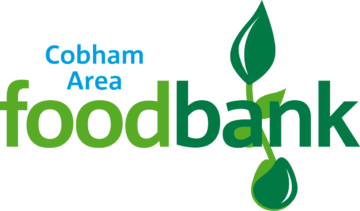Foodbank call for direct DWP hotline, as new figures show half a million emergency food parcels distributed by Trussell Trust foodbanks in six month
- More than 500,000 three day emergency food parcels distributed to people in crisis in first half of the year – over 188,500 to children
- Issues with benefits account for 44 per cent of all referrals
- Charity calls for foodbank telephone ‘hotline’ to local Job Centres to support people in crisis more quickly and efficiently, reducing negative impact on mental wellbeing
Anti-poverty charity, The Trussell Trust, has today proposed a direct telephone line between foodbanks and local job centres – as it reveals that more than half a million emergency food parcels have been issued in the first six months of the year. The staggering number means that the foodbank network is on course to distribute the highest number of food parcels in its 12-year history during 2016-17.
Between April and September 2016, Trussell Trust foodbanks across the UK distributed 519,342 three day emergency food supplies to people in crisis compared to 506,369 during the same period last year. 188,584 of these went to children.
Benefit delays and changes have been the biggest reasons for foodbank use, accounting for forty-four per cent of referrals to Trussell Trust foodbanks (27.4 per cent benefit delay; 16.6 per cent benefit changes). In response the charity is calling for a hotline to each foodbank’s local Job Centre Plus.
Low income was the second largest cause of a crisis, accounting for nearly one in four of all referrals to Trussell Trust foodbanks, driven by problems such as low pay, insecure work or rising costs.
The Trussell Trust recently welcomed moves by the Department for Work & Pensions to look again at disability benefits and Work Capability Assessments and proposes a phone hotline as another measure to help people out of crisis. This would provide timely and invaluable trouble-shooting support for people referred to foodbanks because of problems with a welfare claim.
David McAuley, Chief Executive of The Trussell Trust, comments: “As the number of emergency food parcels provided to people by foodbanks rises once again, it’s clear that more can be done to get people back on their feet faster. Many foodbanks now host independent welfare and debt advisers but they cannot solve all the issues.
“To stop UK hunger we must make sure the welfare system works fairly and compassionately, stopping people getting to a point where they have no money to eat. It feels like we could be seeing a new era at the DWP with a consultation on Work Capability Assessments and willingness to engage in dialogue with charities working on the front line. A telephone hotline could build on this and go a long way to improving foodbanks ability to help get people out of a crisis faster.”
A hotline would be a low cost solution that allows foodbank managers and volunteers to support those in serious crises more quickly and efficiently, reducing stress and negative impact on the mental wellbeing of people referred to the foodbank. Evidence from The Trussell Trust network of foodbanks suggests foodbank managers, volunteers and welfare advisers spend a significant amount of time on hold to DWP phone lines on behalf of people in crisis.
Within The Trussell Trust foodbank network, partnership work and ‘More than Food’ projects that offer additional support to address the underlying causes of a foodbank referral have already had a positive impact. Coventry Foodbank experienced a decrease of nearly 3,000 referrals in 2015-16 compared to 2014-15 and attributes some of this to the introduction of independent welfare advisers. The foodbank works with Citizens Advice on the Restart Project, a Big Lottery-funded partnership which ensures holistic advice is offered in foodbanks.
Volunteers at Coventry Foodbank provide advice to people at the foodbank and, if someone needs to talk to a senior caseworker from Citizens Advice, they can, immediately, using Skype. Of people who receive further assistance 79 per cent do not return to the foodbank for support. More than £700,000 was recouped for people in the form of; debts restructured, people accessing benefits they did not know they were eligible for and overturning sanctions.
When ‘Sarah’ was referred to Coventry Foodbank, she was suffering with debt problems. Before speaking to a Citizens Advice adviser as part of the Restart Project she had been unaware she was entitled to working tax credits. After visiting, she also had her debt repayments renegotiated to sustainable amounts, increasing her income by £155 per week. This meant she could afford food, for herself and her children, and no longer needed the foodbank.
This is a measure of volume rather than unique users, and on average, people needed two foodbank referrals in the last year.

